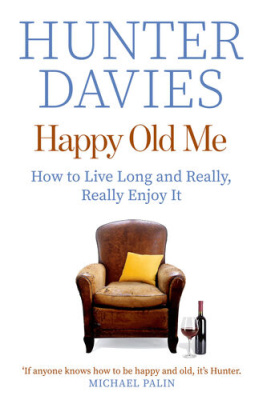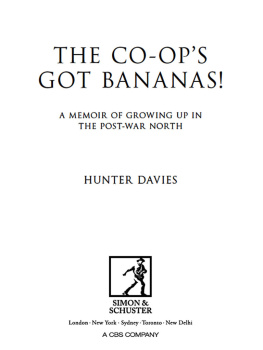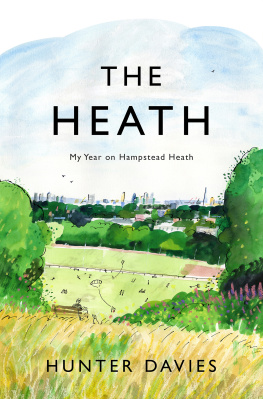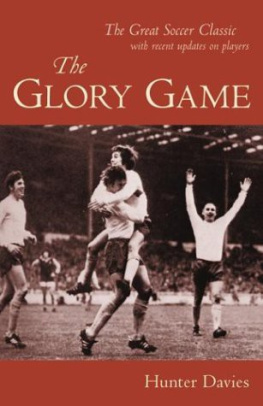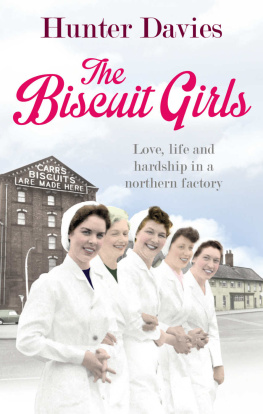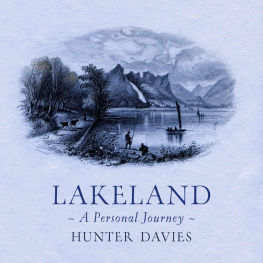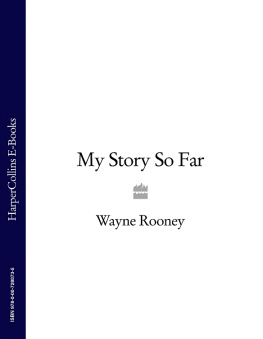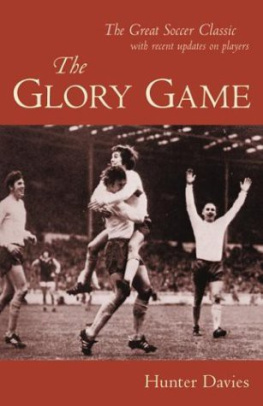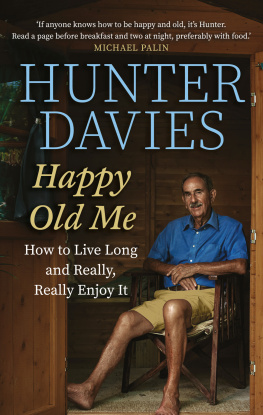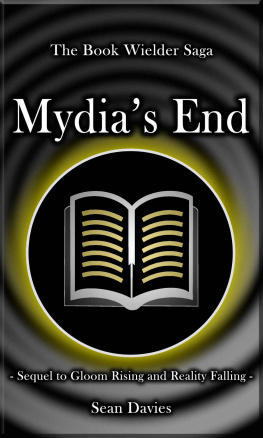Hunter Davies - London Parks
Here you can read online Hunter Davies - London Parks full text of the book (entire story) in english for free. Download pdf and epub, get meaning, cover and reviews about this ebook. year: 2021, publisher: Simon & Schuster, Limited, genre: Detective and thriller. Description of the work, (preface) as well as reviews are available. Best literature library LitArk.com created for fans of good reading and offers a wide selection of genres:
Romance novel
Science fiction
Adventure
Detective
Science
History
Home and family
Prose
Art
Politics
Computer
Non-fiction
Religion
Business
Children
Humor
Choose a favorite category and find really read worthwhile books. Enjoy immersion in the world of imagination, feel the emotions of the characters or learn something new for yourself, make an fascinating discovery.
- Book:London Parks
- Author:
- Publisher:Simon & Schuster, Limited
- Genre:
- Year:2021
- Rating:5 / 5
- Favourites:Add to favourites
- Your mark:
- 100
- 1
- 2
- 3
- 4
- 5
London Parks: summary, description and annotation
We offer to read an annotation, description, summary or preface (depends on what the author of the book "London Parks" wrote himself). If you haven't found the necessary information about the book — write in the comments, we will try to find it.
London Parks — read online for free the complete book (whole text) full work
Below is the text of the book, divided by pages. System saving the place of the last page read, allows you to conveniently read the book "London Parks" online for free, without having to search again every time where you left off. Put a bookmark, and you can go to the page where you finished reading at any time.
Font size:
Interval:
Bookmark:
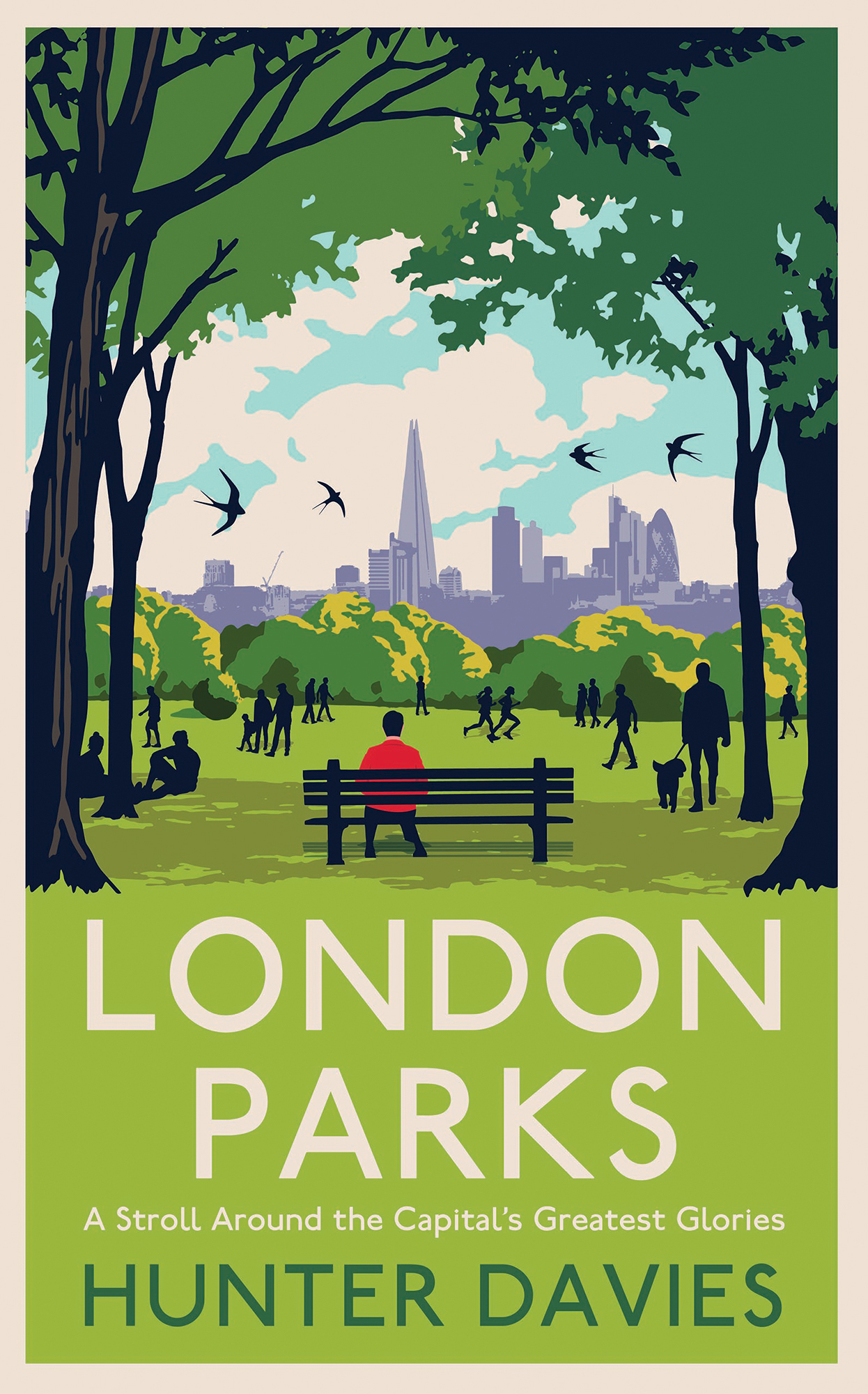
London Parks
A Stroll Around the Capitals Greatest Glories
Hunter Davies
Thank you for downloading this Simon & Schuster ebook.
Join our mailing list to get updates on new releases, deals, recommended reads, and more from Simon & Schuster.
CLICK HERE TO SIGN UP
Already a subscriber? Provide your email again so we can register this ebook and send you more of what you like to read. You will continue to receive exclusive offers in your inbox.

For Claire, who I hope will be walking with me for ever
Are the London parks the capitals greatest glory? Lets think what the other contenders might be: the Thames? Good suggestion. The Thames has been there for ever and it flows through London and the heart of its history. In fact, the Thames is the main reason London exists at all. But other big cities, such as Paris, have pretty impressive rivers. And in the UK the Clyde is one of the prides of Glasgow and the Tyne is at the heart of Newcastle.
Londons buildings? Yes, there are lots of stunning ones, but per square inch you would have to say that Venice beats London for architectural wonders.
The royal family? Unfair to drag them in. They are a national monument, not just a London one, though awfully well known throughout the world.
The theatre? Londons West End does have more live theatres than any other city, with wonderful actors and great playwrights. There are currently 230 professional theatres in London, with seating for over 100,000. They attract a lot of tourists, and natives. Depending on your interests in life, where you live and what you do, you might well consider the theatres are Londons best thing.
Londons football clubs? This is not as daft as it sounds. London usually has five or six clubs in the top division and the Premier League, so the Premier League and Sky TV constantly tell us, is the envy of the world; the most watched, with the best players. Much though I love football, in another twenty years all the worlds stars could well have left these shores and be kicking a ball around in China. So lets forget football.
My vote for our greatest glory goes to London parks. Its not new news. Critic and essayist John Ruskin once observed: The measure of any great civilization is in its cities, and the measure of a citys greatness is to be found in the quality of its public spaces, its parks and squares. He had the honour of having a park in Londons Denmark Hill named after him.
And the good news is that London parks are still growing, despite the temptation to build offices and homes for mighty profit in any spare square yard. Yet I can think of five major parks that were not here before the war, which together have added over 1,000 acres to London park life. Three I have included in this book Burgess Park, Olympic Park and the Wetland Centre. Add to those Northala Fields and Beckenham Place Park. Amazing. Five new London parks, which I bet are unknown to most Londoners. London has recently announced itself as the worlds first national park city, in recognition of all the wonderful parks and green spaces we are so fortunate to have acquired or created over the centuries.
We need our parks more than ever before, for our health and spirits, our bodies and souls, to keep us fit, to save us from pollution, to protect nature and wildlife. The parks are lungs. They do our breathing for us. Research says a leisurely walk in a park reduces your stress levels by 12 per cent.
During the lockdowns of 2020, caused by the coronavirus, what would we have done without our parks? The London parks, in fact all parks all over the nation, proved a vital escape, a tonic, giving health and spiritual uplift to everyone and all for free.
I thought when I first started this book, back in 2018, that we would have no more new urban parks but one of the effects of the virus is that the government is now promising to contribute towards new city centre parks in Manchester, Leeds and Sheffield.
Parks are being used more than ever before. Every park I visited just before the lockdown set in reported that visitor numbers have roughly doubled in the last twenty years. Its hard to estimate how many of us visit a park every year they dont have turnstiles. But surveys show that the Royal Parks alone get 78 million annual visitors. Counting all London parks, big and small, royal and common, it must be at least 250 million a year.
There are eight Royal Parks in London, and I have included four. Their history is our history, the nations story unfolded on their landscape. Visitors to Hyde Park cant believe that it exists, plonked right in the heart of the richest chunk of real estate in London, if not the world. Wow. How did that happen?
The Royal Parks have been with us for around 500 years and represent the first stage in the evolution of the London parks. The Royals originally grabbed some local land around palaces for hunting and fun, and then, over the centuries, they let in the great unwashed or were forced to do so.
The second stage was in Victorian times. Enlightened persons and socially conscious local authorities decided that the toffs living near the Royal Parks should not have all the perks and parks. What about the poor and deprived in the East End? Surely they could do with some decent air? In fact, the notion that parks would benefit the wider public had been around since the start of the nineteenth century, voiced by luminaries including Scottish landscape designer John Claudius Loudon, who advocated for the installation of parks as breathing spaces in the Gardeners Magazine in 1829. Four years later a parliamentary select committee was formed to investigate how public walks might be a valuable addition to society. Its report observed, The provision of parks would lead to a better use of Sundays and the replacement of debasing pleasures.
Im sure not everyone was in agreement on that point, but during the Victoria era, around forty new public parks were created, a dozen of them in London. The best known in London is probably the aptly named Victoria Park.
The third stage, which even long-time residents of London might not really be aware of, is that since the war we have had some brand new parks, created from scratch, and not all for the same reason. Burgess Park, for example, in south London, was dreamt up in a wartime bomb shelter by some town planners who vowed that they would improve the lives of the people who lived nearby.
Northala Fields, near the thundering A40 in Ealing, has recently been created from rubbish tips and accumulated waste dumped over the decades to make way for Heathrow Airport, Wembley Stadium and other monster constructions. It is now a 68-acre public park with fishing lakes, sports fields and four hills to mask the traffic noise.
Beckenham Place Park in Lewisham, which opened as a public park only in 2019, used to be a golf course. Now, among other delights, it is a 237-acre public park with an enormous 285-metre-long swimming lake. It adds to the long-established open-air swimming places which other London parks have had for many years, such as Hampstead Heath and Hyde Park.
Open-air swimming, or wild swimming, to give it its new cool name, has become incredibly popular in the last ten years. Today, 266,500 people in England swim in open water at least twice a month. In 2015, the number was only 93,500. One day in September 2019 the Serpentine in Hyde Park had 6,000 swimmers doing races up to two miles long. Global warming could make all-year-round wild swimmers of us all. Who will need to go abroad when we have the London parks and lidos to swim in?
Font size:
Interval:
Bookmark:
Similar books «London Parks»
Look at similar books to London Parks. We have selected literature similar in name and meaning in the hope of providing readers with more options to find new, interesting, not yet read works.
Discussion, reviews of the book London Parks and just readers' own opinions. Leave your comments, write what you think about the work, its meaning or the main characters. Specify what exactly you liked and what you didn't like, and why you think so.

